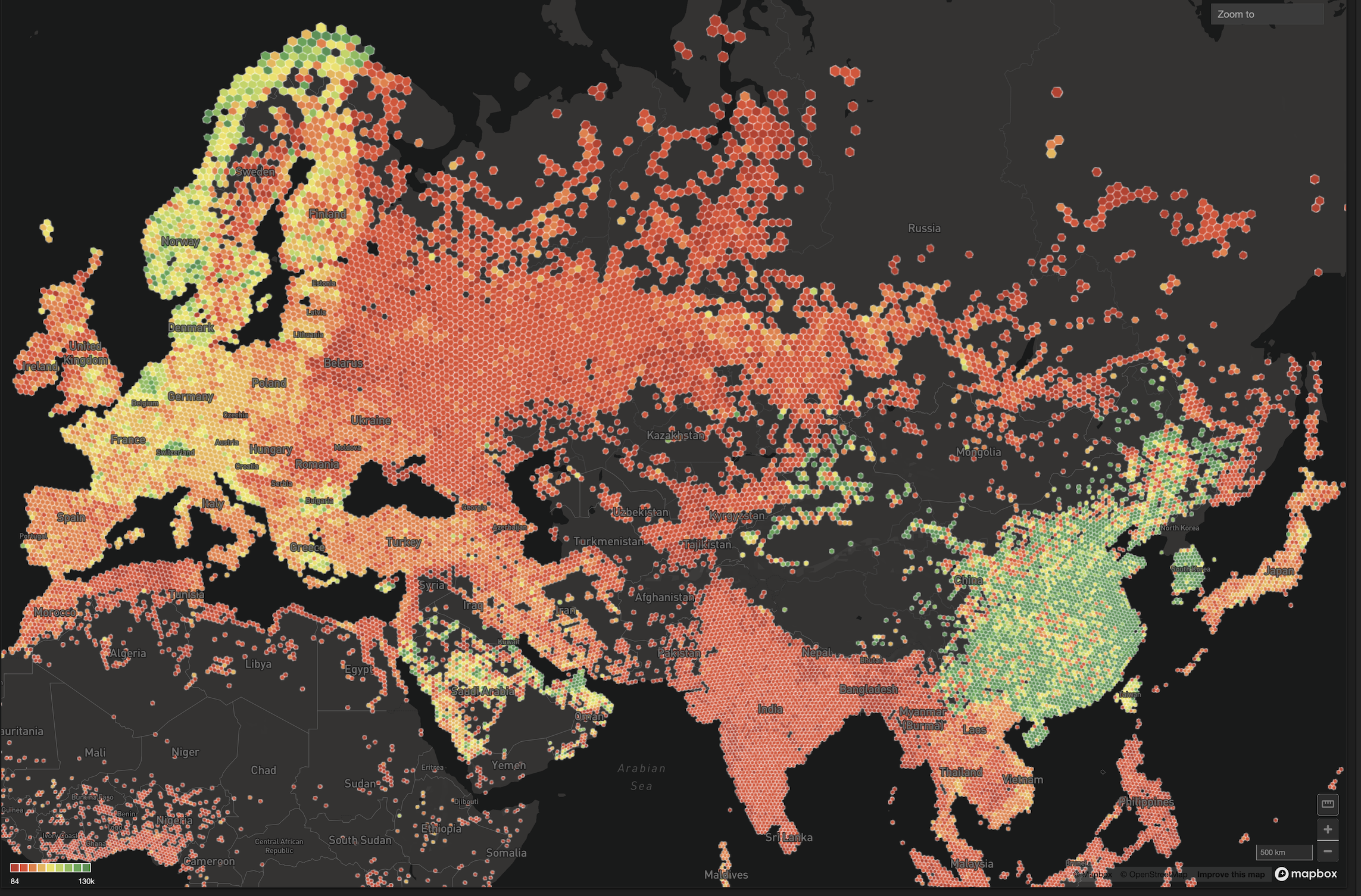
The next generation of BI promises automated tools that anyone can use to unlock the power of augmented business analytics. Get our take on the future of business intelligence.

Learn how to maximize the potential of your business intelligence (BI) dashboard by adhering to these tips and best practices

We are incredibly excited to announce HEAVY.AI Version 5.8, a release that ushers in foundational changes to HEAVY.AI's rendering engine, introduces new database functionality, geospatial operators, and system administration tools.

This tutorial will focus on how to load datasets into HEAVY.AI using the Secure Copy Protocol (SCP) and the COPY FROM SQL command.

The following tutorial will use HEAVY.AI's JupyterLab integration and Immerse to ingest, analyze, and visualize GHCN data.

Climate change is triggering environmental events that are growing in severity and frequency. Learn how real-time environmental monitoring systems and data science can reduce our impact on the environment.

This post will give an overview of our visual analytics dashboard parameters, show you how to set them up, and provide an example of how parameters promote a user-centric workflow.

This month we are excited to announce HEAVY.AI Version 5.7, a release that enhances features first introduced at 5.6, enables a more efficient and performant rendering experience, and improves query engine execution.

With cyber attacks growing in frequency and sophistication in the era of big data, the need to leverage big data analytics in cyber defense is critical. How can big data analytics help us better understand cyber threats, predict attacks, and stop intrusions in their tracks?

Learn the importance of utilizing data analytics and other geospatial technologies to protect communities across the country from wildfires and their devastating impacts




